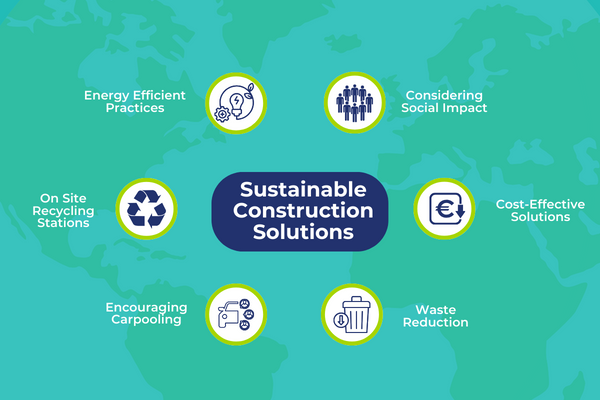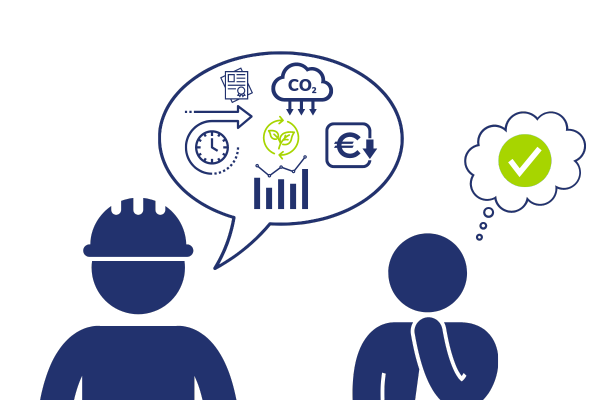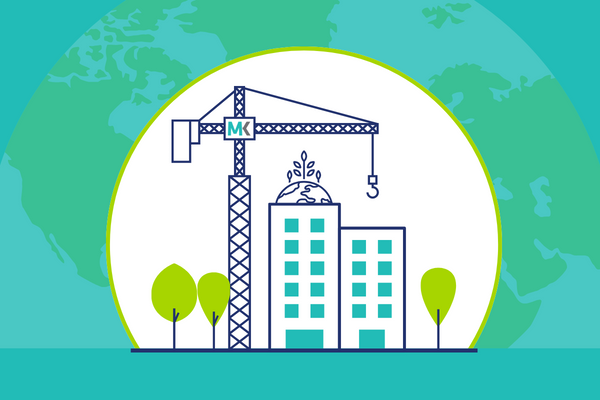As the world turns its attention towards sustainability and combating climate change, industries are re-evaluating their practices. Among these, the construction industry stands at the forefront of change, recognising its significant role in shaping a more sustainable future.
The construction industry is not just about constructing buildings; it’s about creating spaces that respect the environment, enhance communities, and stand the test of time.
In this article, learn about how sustainability is now being incorporated into construction from the earliest stages of development and explore the industry’s ongoing journey towards a greener, more sustainable future.
Green Procurement
As we all know, climate change presents one of the most pressing challenges of our time. With its considerable environmental impact, the construction industry has a crucial role to play in mitigating these effects. Buildings alone account for a substantial portion of global greenhouse gas emissions, making it imperative for construction companies to adopt eco-friendly practices.
One way the industry is addressing this challenge is through Green Procurement (GP). GP, which has been mandatory in government subsidised builds since January 2023, represents a fundamental shift in how we approach the procurement of goods, services and utilities. It is a process that goes beyond the traditional metrics of cost and efficiency, urging private, public, and semi-public authorities to consider the environmental and economic impact of their choices across the entire life cycle of a product or service.
This approach integrates existing environmental standards into procurement processes, ensuring that we consider energy efficiency, waste reduction, and social impact at all stages of project development.

Sustainable Tendering
Tendering plays a pivotal role in driving sustainability within the industry, as it is essential to ensure that sustainability is integrated into project development from the beginning. A sustainability section has been mandatory in government subsidised builds since January 2023.
One of the primary functions of this sustainability section is to assess the potential environmental and social impact of the project. Contractors detail how their proposed methods will minimise carbon footprint, reduce waste generation, and promote social responsibility.
Sustainable solutions can involve sourcing material from as close to the site as possible, encouraging carpooling, using green fuel in on site generators, or setting up on site recycling stations.
Integrating sustainability into the tendering process encourages contractors to propose cost-effective yet environmentally friendly solutions. These practices reduce long-term operational costs for the client while also contributing to the overall economic viability of the project.

Similarly, the sustainability section serves as a key differentiator among proposals. Contractors who demonstrate a thorough understanding of sustainable practices naturally stand out as preferred partners for clients. The ability to articulate a compelling sustainability strategy, supported by data and certifications, gives contractors a competitive edge in securing contracts and forging long-term relationships with clients.
In essence, the tender’s sustainability section provides a roadmap for contractors to align their proposals with a client’s vision of sustainability in their space. This comprehensive evaluation at the initial stages of development ensures that projects meet environmental goals at every turn.
McKeon Group
At McKeon Group, we understand that every bit counts. Whether through mindful material choices, energy efficient practices, or social initiatives, we are dedicated to making a positive impact. Safety, Sustainability, Efficiency and Quality are the critical components of every project we undertake.
Through our membership with the Irish Green Building Council, adherence to ESG principles, and collaboration with Goodbody Clearstream, we are setting ambitious goals to improve our sustainability. We are working closely with our Environmental Consultant, Caroline Vaughan, to develop a roadmap for the next five years.
Since 2019, we have supported the DCU Access to the Workplace programme in line with achieving our ESG goals. This fantastic initiative provides professional summer internships for DCU Access students from socio-economically disadvantaged backgrounds and for neurodivergent students. We have had interns join us from the programme over the years, and we are so grateful to have had their diverse talents and different perspectives on our team.
To date, we have prioritised using Ecocel cellulose insulation over average insulation. Ecocel creates 0.31kg of Carbon Dioxide to make 1kg of product, which is a significant improvement over average insulation, which creates 4kg of Carbon Dioxide to create the same quantity of product.
Similarly to this, we are promoting sustainability through the reuse of furniture and materials on our projects. We separate all of our on site waste to facilitate thorough recycling. Alongside this, we place great emphasis on ensuring thorough water conservation, metering and reuse.
We are simultaneously focusing on energy conservation, environmental protection and social responsibility to join the construction industry in creating a sustainable future.
If you have a construction project you would like to undertake, get in touch today.


